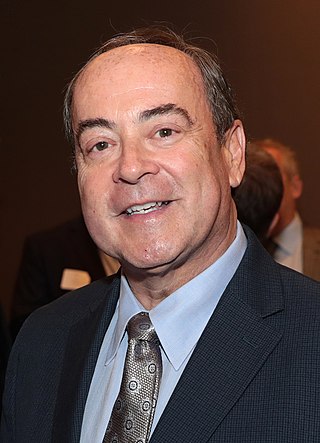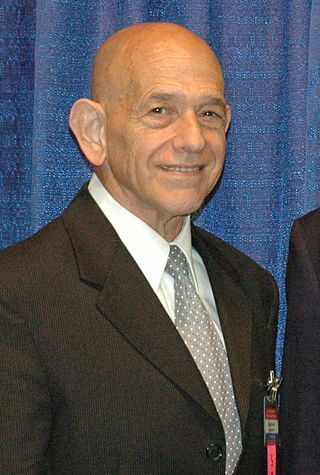Related Research Articles

Lysander Spooner was an American abolitionist, entrepreneur, lawyer, essayist, natural rights legal theorist, pamphletist, political philosopher, Unitarian and writer often associated with the Boston anarchist tradition. Although the notion of Spooner as an anarchist has been challenged by legal historian Clay S. Conrad, who pointed out that Spooner advocated constitutionally limited governments in his writings.

The Federalist Society for Law and Public Policy Studies (FedSoc) is an American conservative and libertarian legal organization that advocates for a textualist and originalist interpretation of the U.S. Constitution. Headquartered in Washington, D.C., it has chapters at more than 200 law schools and features student, lawyer, and faculty divisions; the lawyers division comprises more than 70,000 practicing attorneys in ninety cities. Through speaking events, lectures, and other activities, it provides a forum for legal experts of opposing views to interact with members of the legal profession, the judiciary, and the legal academy. It is one of the most influential legal organizations in the United States.

Randy Evan Barnett is an American legal scholar. He serves as the Patrick Hotung Professor of Constitutional Law at Georgetown University, where he teaches constitutional law and contracts, and is the director of the Georgetown Center for the Constitution.

Richard Allen Epstein is an American legal scholar known for his writings on torts, contracts, property rights, law and economics, classical liberalism, and libertarianism. He is the Laurence A. Tisch Professor of Law at New York University and the director of the Classical Liberal Institute. He also serves as the Peter and Kirsten Bedford Senior Fellow at the Hoover Institution and the James Parker Hall Distinguished Service Professor of Law emeritus and a senior lecturer at the University of Chicago.
Lochner v. New York, 198 U.S. 45 (1905), was a landmark decision of the U.S. Supreme Court holding that a New York State statute that prescribed maximum working hours for bakers violated the bakers' right to freedom of contract under the Fourteenth Amendment to the U.S. Constitution. The decision has been effectively overturned.

Stanford Law School (SLS) is the law school of Stanford University, a private research university near Palo Alto, California. Established in 1893, Stanford Law had an acceptance rate of 6.28% in 2021, the second-lowest of any law school in the country. Since October 2023, Robert Weisberg has served as its dean.

The Institute for Justice (IJ) is a libertarian non-profit public interest law firm in the United States. It has litigated ten cases before the United States Supreme Court dealing with eminent domain, interstate commerce, public financing for elections, school vouchers, tax credits for private school tuition, civil asset forfeiture, and residency requirements for liquor license. The organization was founded on September 3, 1991. As of June 2016, it employed a staff of 95 in Arlington, Virginia and seven offices across the United States. Its 2016 budget was $20 million.

Clint Bolick is a justice of the Arizona Supreme Court. Previously, he served as Vice President of Litigation at the conservative/libertarian Goldwater Institute. He co-founded the libertarian Institute for Justice, where he was the Vice President and Director of Litigation from 1991 until 2004. He led two cases that went before the Supreme Court of the United States. He has also defended state-based school choice programs in the Supreme Courts of Wisconsin and Ohio.
The chief instrument through which judicial activism has flourished in India is public interest litigation (PIL) or social action litigation (SAL). It refers to litigation undertaken to secure public interest and demonstrates the availability of justice to socially-disadvantaged parties and was introduced by Justice P. N. Bhagwati and Justice V.R. Krishna Iyer. It is a relaxation on the traditional rule of locus standi. Before 1980s the judiciary and the Supreme Court of India entertained litigation only from parties affected directly or indirectly by the defendant. It heard and decided cases only under its original and appellate jurisdictions. However, the Supreme Court began permitting cases on the grounds of public interest litigation, which means that even people who are not directly involved in the case may bring matters of public interest to the court. It is the court's privilege to entertain the application for the PIL.
Mountain States Legal Foundation (MSLF) is an American conservative free market public interest law firm based in Lakewood, Colorado. Its lawyers argue cases on property rights and federal land management in the American West, as well as gun rights and other constitutional law cases.
Jenner & Block is an American law firm with offices in Chicago, London, Los Angeles, New York City, San Francisco, and Washington, D.C. The firm is active in corporate litigation, business transactions, the public sector, and other legal fields. It has litigated several prominent cases before the United States Supreme Court. As of 2014, it was the 103rd-largest law firm in the US, based on The American Lawyer's annual ranking of firms by headcount.
Charles J. "Chuck" Cooper is an appellate attorney and litigator in Washington, D.C., where he is a founding member and chairman of the law firm Cooper & Kirk, PLLC. He was named by The National Law Journal as one of the 10 best civil litigators in Washington. The New York Times described him as "one of Washington’s best-known lawyers." He has represented prominent American political figures, including Attorney General Jeff Sessions, in response to the alleged Russian interference in the 2016 United States elections; Attorney General John Ashcroft; and former National Security Adviser and United States Ambassador to the United Nations John Bolton.
Becket, also known as the Becket Fund for Religious Liberty, is a non-profit public interest law firm based in Washington, D.C., that describes its mission as "defending the freedom of religion of people of all faiths". Becket promotes accommodationism and is active in the judicial system, the media, and in education.
The University of Texas School of Law is the law school of the University of Texas at Austin, a public research university in Austin, Texas. According to Texas Law’s 2019 disclosures, 90 percent of the Class of 2019 obtained full-time, long-term bar passage required/JD advantage employment nine months after graduation.
The Constitution Project is a non-profit think tank in the United States whose goal is to build bipartisan consensus on significant constitutional and legal questions. Its founder and president is Virginia Sloan. The Constitution Project’s work is divided between two programs: the Rule of Law Program and the Criminal Justice Program. Each program houses bipartisan committees focused on specific constitutional issues.
Dana Berliner is Litigation Director at the Institute for Justice, a public interest law firm in Arlington, Virginia founded in 1991 by Chip Mellor and Clint Bolick. She was co-lead counsel for Susette Kelo in the landmark United States Supreme Court case Kelo v. City of New London.
The Pacific Legal Foundation (PLF) is an American nonprofit public interest legal organization established for the purpose of defending and promoting individual and economic freedom. PLF attorneys provide pro bono legal representation, file amicus curiae briefs, and hold administrative proceedings with the stated goal of supporting property rights, equality before the law, freedom of speech and association, economic liberty, and the separation of powers. The organization is the first and oldest libertarian public interest law firm, having been founded in 1973.

Robert A. Levy is the chairman of the American libertarian Cato Institute as well as a director of the Institute of Justice, and the organizer and financier behind District of Columbia v. Heller, as well as Heller's co-counsel, in the U.S. Supreme Court Case that established the Second Amendment to the United States Constitution as affirming an individual right to gun ownership. He is a Cato senior fellow and an author and pundit. Before becoming a lawyer, he was the founder and CEO of CDA Investment Technologies. Levy is the founder of The Robert A. Levy Fellowship in Law and Liberty which encourages talented scholars to pursue a JD degree at Antonin Scalia Law School, George Mason University.
Home Building & Loan Association v. Blaisdell, 290 U.S. 398 (1934), was a decision of the United States Supreme Court holding that Minnesota's suspension of creditors' remedies was not in violation of the Contract Clause of the United States Constitution. Blaisdell was decided during the depth of the Great Depression and has been criticized by modern conservative and libertarian commentators.
First Liberty Institute is a nonprofit Christian conservative legal organization based in Plano, Texas.
References
- 1 2 Kramer, John E. (December 31, 2015). "Fighting for the American Dream". National Review .
- ↑ Morrissey, Siobhan (September 24, 2009). "Chip Mellor: Libertarian Law". ABA Journal .
- ↑ Gillespie, Nick (March 2008). "Litigating for Liberty". Reason .
- 1 2 3 "William H. Mellor". Bradley Foundation. 2012. Retrieved 2021-04-02.
- ↑ Rosen, Jeffrey (April 17, 2005). "The Unregulated Offensive". The New York Times .
- ↑ Proctor, Cathy (October 27, 2011). "Law group appeals for Mile High Cab to Colorado Supreme Court". Denver Business Journal.
- ↑ Franch, Steve (May 2001). "Dusty Doctrines". ABA Journal . Retrieved April 2, 2021.
- ↑ Mellor, Chip (October 1994). "A Right to Welfare?". Reason .
- ↑ Sloan, Julie (June 1, 2004). "Libertarians and Justice for all?". Fortune Small Business.
- ↑ "Young Leaders Circle Forum With William "Chip" Mellor". Manhattan Institute . Retrieved 2021-04-02.
- ↑ Levy, Collin (2012-01-07). "Litigating for Liberty". Wall Street Journal.